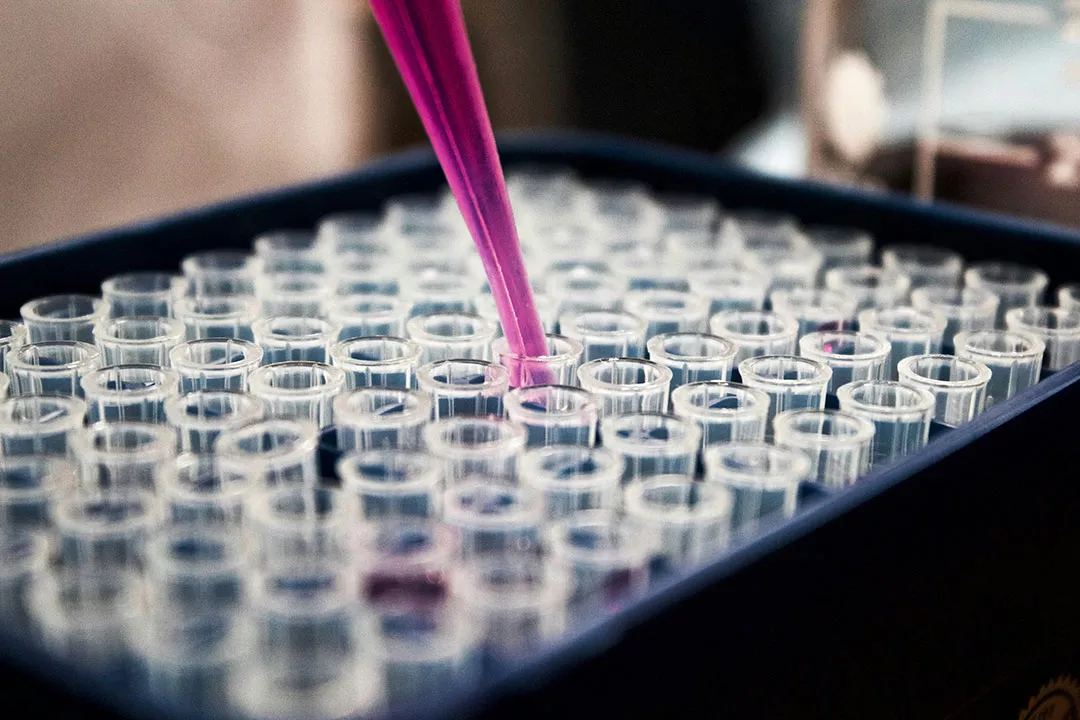Can You Get an STI From Kissing?
3178
STIs can be transmitted through kissing, especially if the infection spreads via saliva, like herpes or Epstein-Barr virus.

Can You Get an STI From Kissing?
Saliva and kissing can transfer some sexually transmitted illnesses, such as herpes simplex virus and cytomegalovirus. Kissing someone may be an extremely thrilling experience, especially if it is your first kiss.
Kissing is a sign of closeness between lovers. Kissing, as a kind of nonpenetrative sex, is frequently seen as a safer sex practice since it is associated with a substantially lower risk of sexually transmitted infections (STIs) and illnesses (STDs) than other activities such as oral sex.
However, when you engage in a deep, or "French Kiss" in which your tongues meet and you exchange saliva with your partner(s), there is still some risk of transmitting particular STIs.
If you have symptoms or want to discuss sexual health, you can consult with doctors at the PULSE Clinic. To book an appointment, please email us at info.bkk@pulse-clinic.com or contact us on your preferred platform.
![]() +66 65 237 1936
+66 65 237 1936  @PULSEClinic
@PULSEClinic ![]() PulseClinic
PulseClinic
STIs/STDs you can get from kissing?
These are the most prevalent STIs that may be transferred by kissing:
Herpes Simplex Virus 1 and 2
Herpes simplex virus (HSV) is a widespread infection with several variants that produce painful sores, blisters, and ulcers.
HSV-1, often known as oral herpes, develops red or white cold sores in and around your mouth. It is believed that 67% of persons under the age of 50 are infected with this virus. This virus can be contracted by kissing when there are no symptoms, touching or kissing an active cold sore, or exchanging eating utensils, lip balm, or razors. If you have oral intercourse with someone who has the virus, it can potentially travel to your genitals.
HSV-2, often known as genital herpes, is most commonly spread during oral, genital, or anal intercourse. However, it can also be spread by mouth-to-mouth kissing, especially if you and/or your partner(s) are also having oral sex.
HSV is not treatable. However, it falls latent or stays inactive for periods, making the virus less likely to spread (but still possible). When cold sores or flare-ups appear and the virus becomes more active, antiviral drugs and topical ointments can help minimize the intensity of your symptoms.
Syphilis
Syphilis is an STI caused by a bacterial infection that spreads mostly through oral, genital, and anal intercourse. The bacterium that causes syphilis can enter your body through any of these means, but it can also enter through damaged skin (such as cuts or scratches) or direct physical contact with a syphilis sore or rash. That means If you kiss someone who has an active syphilis sore or cut in or on their lips, or if you kiss a section of their body with an active syphilis rash, you may get the illness. In the first stage of syphilis, known as primary syphilis, painless ulcers called chancres can appear in the mouth or on the lips up to three weeks after exposure.
Deep kissing in high-risk areas lined with mucous, such as the mouth, genitals, and rectum, can increase transmission through the bloodstream. Coming into contact with the skin is generally safe, but if a skin rash has ruptured or is oozing fluid, there is a slightly higher risk of passing through body fluids. Touching someone with an illness is likewise a little risky since the germs are not easily found on the skin.
Syphilis is most commonly detected in its early stages, when you may see pimple-like lesions, sores, and rashes, as well as flu-like symptoms such as lethargy, fever, sore throat, and muscular pains.
Syphilis can create serious issues after the infection becomes latent (meaning the outward signs go away but the virus remains within your body). Syphilis can cause damage to your heart, brain, eyes, and nervous system over time. Therefore, treating the infection with medications immediately is critical to avoiding consequences.
When you find new sores on your body, you should see a doctor right away. Only you know what actions you exhibit that may raise your risk of illness. Syphilis may be treated, and long-term problems are preventable.
Human papillomavirus (HPV)
The human papillomavirus (HPV) is a complicated, common virus that may damage several regions of the body. HPV infections, which include over 200 strains and subtypes, can go undetected for years. This makes HPV even more harmful, as certain strains can cause various types of cancer, including anal cancer and cervical cancer if they remain in your body for an extended length of time. Notably, males who have sex with men (MSM) are more susceptible to HPV infections, which can lead to rectal cancer.
Oral HPV can be caused by around 40 strains of this virus, with nine of those strains having the potential to progress to oropharyngeal cancer. That is why the HPV vaccine is so crucial for both men and women, regardless of age.
Most persons with oral HPV do not exhibit symptoms, but others may develop oral lesions or sores on their lips, inside their mouth, and throat. Oral HPV, like other types of HPV, can spread by oral intercourse or mouth-to-mouth contact. It usually fades away on its own after a few years but might last longer.
Add us on Line and stay in touch.
Gonorrhea
Gonorrhea is another bacterial illness that, until recently, was considered a STI spread by oral, genital, or anal intercourse. However, current evidence reveals that gonorrhea can also be transferred by kissing.
A 2019 study from Melbourne, Australia, examined 3,677 MSM over three months. The study discovered that individuals who only kissed or kissed with other sexual activities had a greater risk of oropharyngeal gonorrhea (throat gonorrhea) than those who just had intercourse without kissing.
Following this, a 2023 systematic review discovered four more papers that corroborated these claims. Those experts presented several reasons why additional study is needed to determine the direct link between kissing and gonorrhea.
For starters, each investigation focused on MSM and was done outside of Australia. Future research should be conducted in different cultures with a diverse population to expand on what these studies have published and see whether or not the same conclusions can be duplicated and validated.
Furthermore, researchers noted that most previous studies on gonorrhea transmission may not have always considered kissing as a potential risk factor and thus may not have always effectively evaluated gonorrhea transmission, particularly among populations that are frequently overlooked or underrepresented, such as the LGBTQIA+ community.
How to talk to your partner about STIs and your status
STIs do not have to be a complicated, taboo topic that makes us uncomfortable. STI prevention requires open and honest conversation with your partners, as well as safe sex behaviors. If you're unsure how to address the issue of sexually transmitted infections with your spouse, here are some strategies:
Understand your individual risk factors: Consider what you do, how you protect yourself, and what areas you want to concentrate on to enhance your safety and lower your chance of infection. Recognizing your own sexual patterns and the kind of practices that promote your safety enables you to set healthier boundaries and have a more intimate conversation with your partner(s).
Focus on the facts: If you have an STI or have a history of STIs, your partner(s) should be aware of it, even if you have had treatment for it or the STI, such as herpes, is now inactive. When discussing this topic, it is critical to stick to the facts. You have to be able to protect yourself, and if you care about your partner(s), you'll want to protect them too, by letting them know. Having this conversation often entails choosing folks with whom you want to be honest and engage. That enhances your chances of having the room to be vulnerable.
Speak with empathy: If your partner discusses their status with you and discloses that they have an STI or a history of STIs, do not disregard that knowledge or their lived experiences. Thank individuals for sharing that knowledge with you, and express your gratitude that they came to you with it, since it is difficult and there is a lot of stigma around STIs that we must overcome. You can establish expectations, ask questions about any drugs available to prevent STIs and discuss additional steps you can take to protect yourself and each other in the future if you choose to continue engaging in sexual activity.
Embrace safer sex and other preventive measures: Get tested for STIs regularly, avoid sharing tools such as razors, toothbrushes, or syringes, use condoms, and see a doctor if you notice any new signs or symptoms of an infection.
Conclusion
Kissing isn't risk-free, but being aware of your sexual health is the first step toward a safe and hopefully joyful experience. Please pay attention to your own body as well as your partner's. Keeping the lines of communication open so you may ask questions is critical to having a safe experience.
Loading...
Clinic Locations
Loading...




























